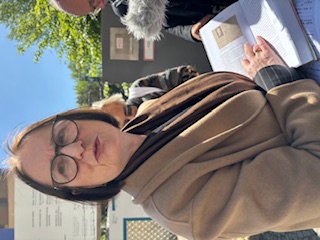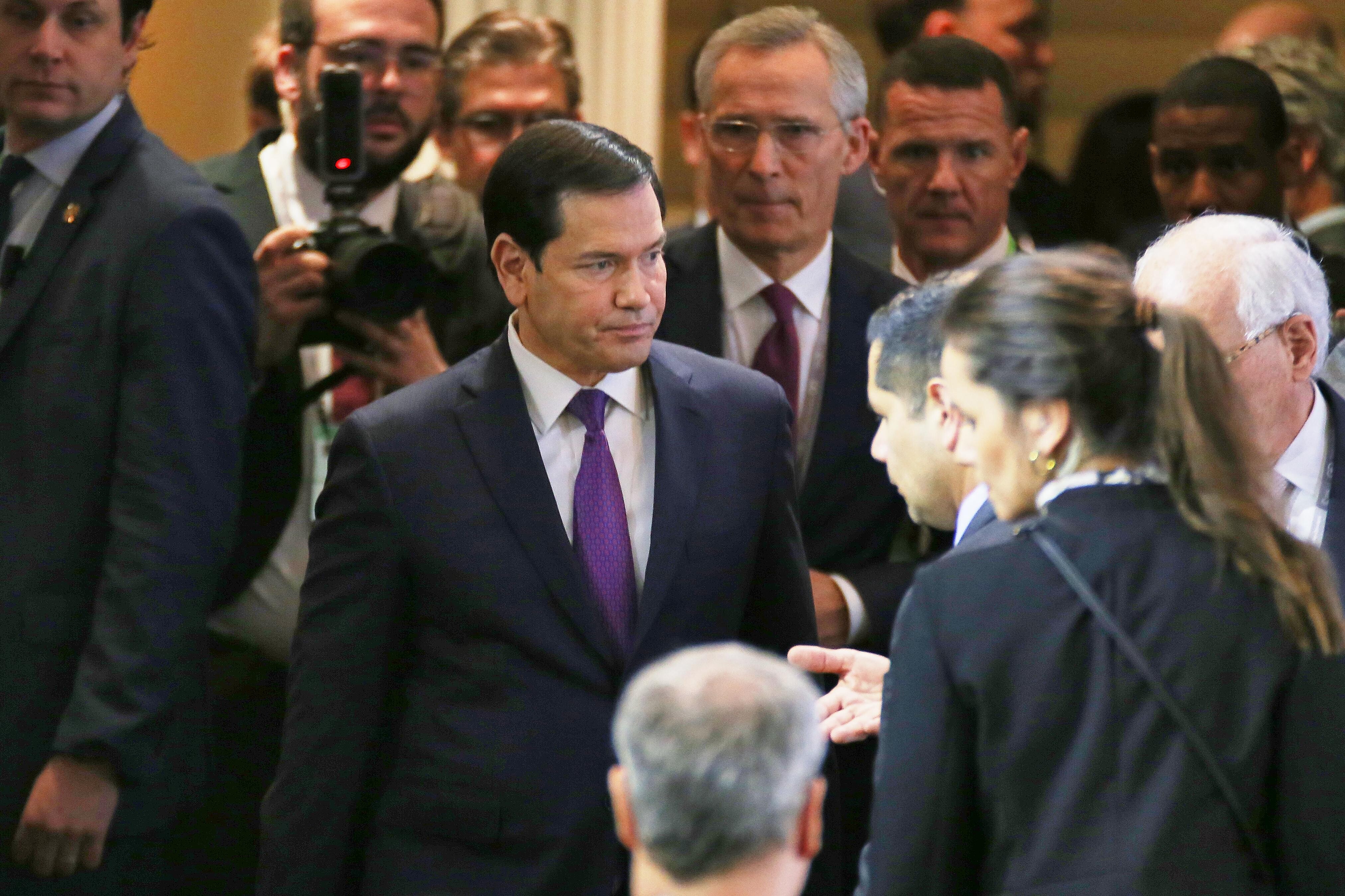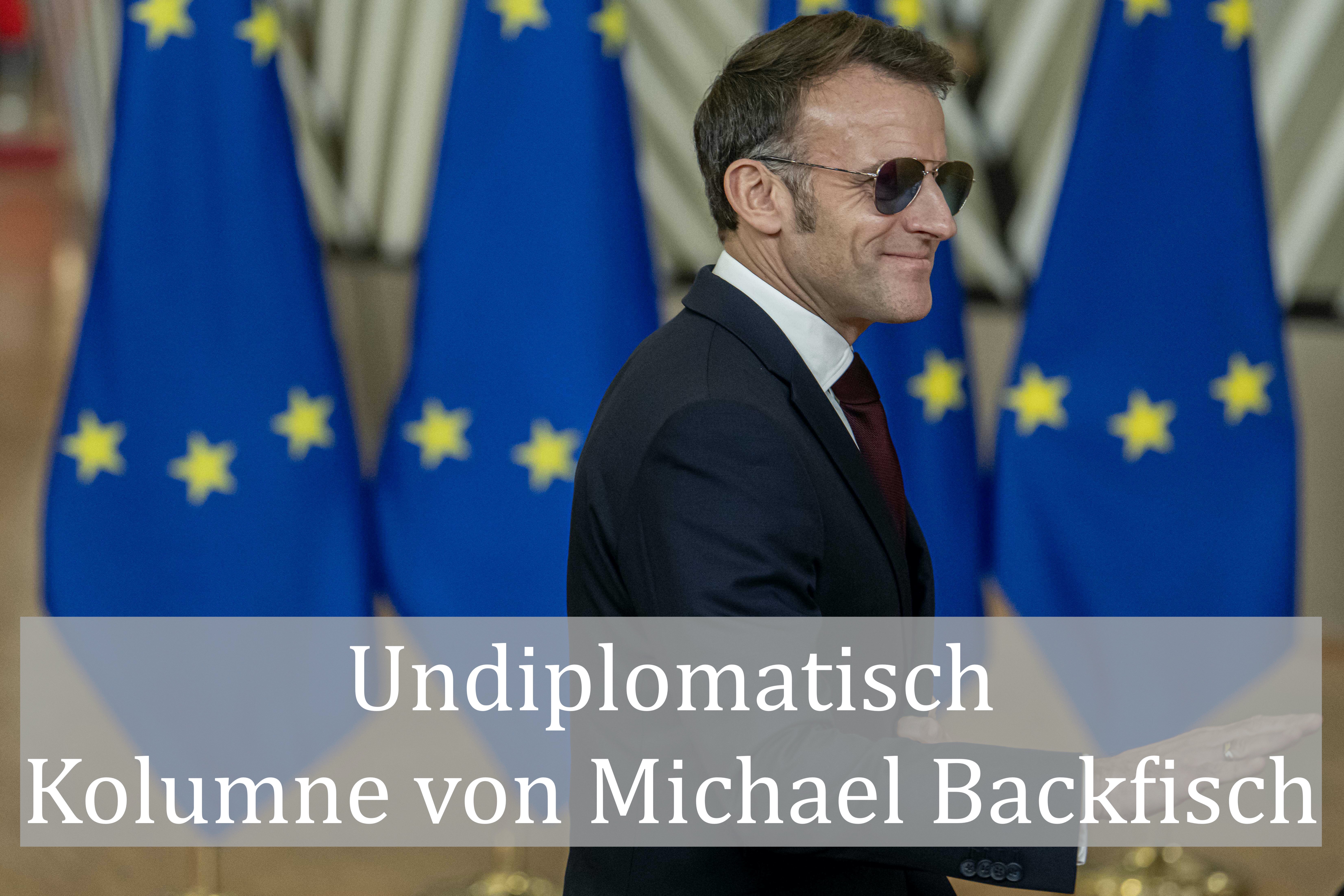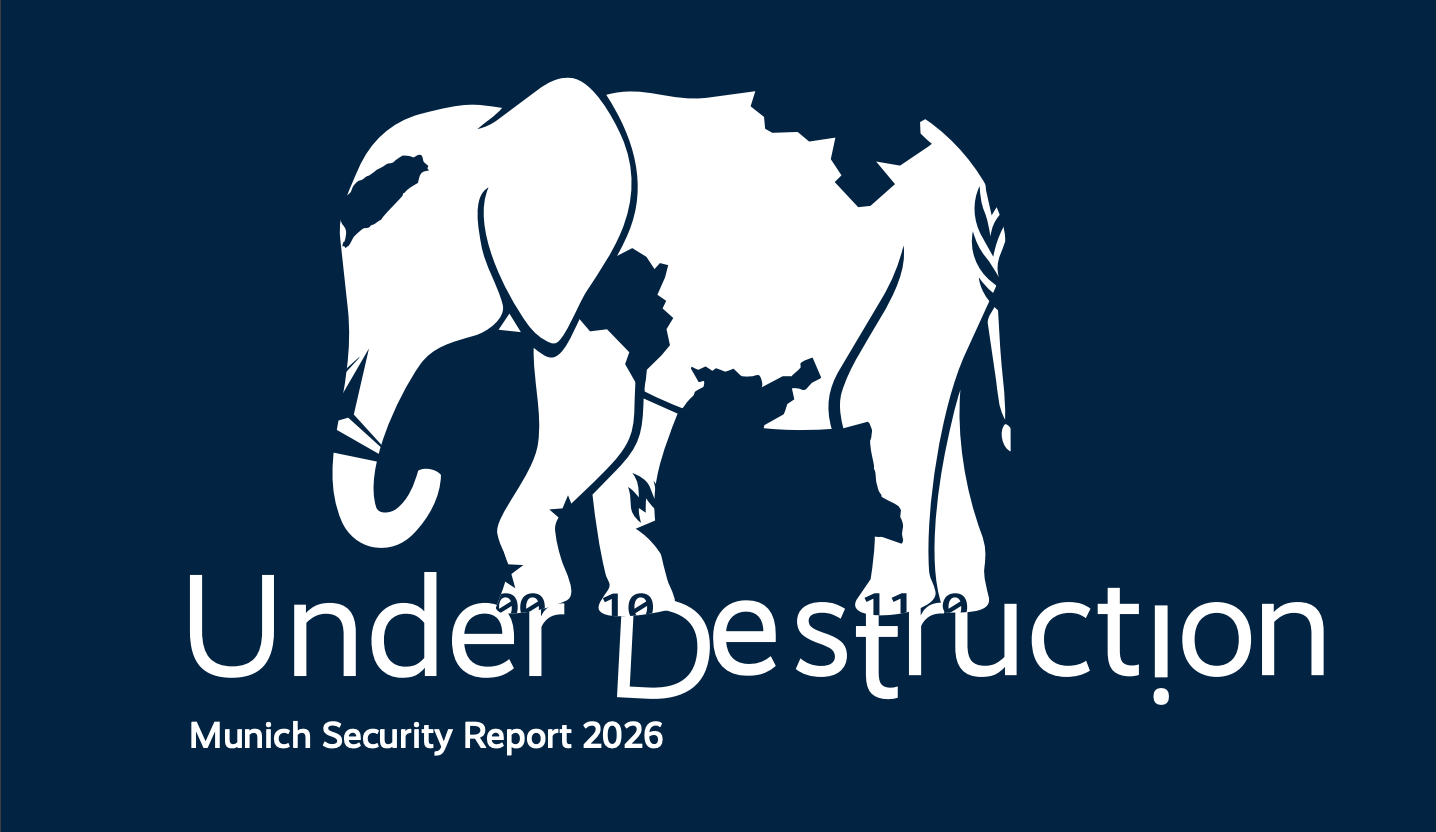diplo.news
Remembrance and the future
By Gudrun Dometeit

There will be no more. Irina Scherbakova, historian and co-founder of the Russian human rights movement Memorial, appears disappointed. Just five journalists came to accompany them on a tour through Berlin to places of remembrance of the Second World War. The tour is intended to be an alternative — to all the official memorial services and speeches in the German capital on May 8 and the pompous military parades on May 9, when Russia celebrates the 80th anniversary of the end of the war. She wants to talk about human fates, personal memories, and deliberately not stop at oversized heroic monuments such as in the Treptow district of Berlin, where a Soviet soldier with a child and a broken swastika testifies to the victory of the Red Army over Nazi Germany. "He is portrayed as a Russian warrior," says Scherbakowa indignantly. “An absolute myth, in reality the Soviet soldiers who took Berlin at the beginning of May 1945 were malnourished and looked completely different. ”
Myths — the 76-year-old, who has lived in exile in Berlin for two years, will use the word quite frequently during the tour. Coming to terms with the Soviet and Russian past, uncovering Stalinist crimes, historical education for young Russians — was the meaning and purpose of the Memorial organization founded in 1989 during Perestroika. A real grassroots movement, one of the first and rare enough in Russia. It received the Nobel Peace Prize in 2022 and has now been disbanded in its own country.
It is a bright, bright morning in central Berlin, the spring sun bathes the US Embassy, the back of the famous Adlon Hotel and the Holocaust Memorial in bright light. Groups of visitors listen to their tour guides, a couple tries to decipher on the reflecting surface of an information board what is written about the former Führerbunker, a few meters away from the memorial to the murdered Jews. Nothing is more reminiscent of the bunker blown up in GDR times, in which Hitler took his own life in the last days of the war. Instead, a parking lot there presents itself as an expression of absolute neutrality without history.
“The entire Berlin operation,” as Scherbakova calls the two-week Battle of Berlin, is a myth that the attack had led to a senseless loss of people, yet celebrated as a heroic “liberation” in Soviet films, which were also very popular in the GDR. There is an anecdote circulating among historians according to which either British Prime Minister Winston Churchill or US President Franklin D. Roosevelt Stalin said in the last weeks of the war that they would see each other in Berlin. Stalin answered: Well, welcome then! In other words, the Soviet dictator had no intention of keeping an alleged agreement with the Allies not to directly attack and conquer the city with its 2.8 million inhabitants. But why not? “He didn't trust the Allies,” says Scherbakova.

The jealousy and competition among the Soviet marshals would also have played a role, the ambition of General Georgy Zhukov, who wanted to conquer the Seelow Heights east of Berlin at any price. According to Scherbakova, the fact that over 38,000 soldiers died in the process alone, many even as a result of their own artillery fire, was never written in Soviet history books. Stalin later forbade his generals to write their memoirs, particularly about the battles for Berlin. In a telephone conversation wiretapped after the war, officers addressed the many senseless orders — and Stalin responded with repression against critics. But even officially, May 9 — the day of the Wehrmacht's unconditional surrender — was not a public holiday from 1947 and in subsequent years.
Hitler's teeth in a cigarette box
Scherbakova has apparently almost forgotten that she is standing in front of the Führerbunker as she turns to one of the most-discussed questions, namely the end of Hitler. “I knew Elena Rzhevskaya,” she says, “the woman who discovered the bodies with her squad back then, from childhood. She was friends with my father.” Adolf Hitler and Eva Braun shot themselves and were burned in front of the bunker. But Rzhevskaya and her comrades were not sure whether the remains were really the couple. “They gave her Hitler's teeth in a cigarette pack while everyone was looking for Hitler's dentist. She was terribly afraid of losing it because it was the only proof,” says Scherbakova, who finds the story of Rzheskaya, a Jewish interpreter, dramatic, strange, tragic. The dentist's assistant was eventually found.
At that time, the young Russian woman contacted the Soviet troops twice to say what she was convinced of: that it was really Hitler and that he had killed himself. Zero response. Stalin also denied all evidence until the end of 1945. “He probably just wanted to have the true evidence for himself and at the same time be able to claim that the real Hitler was hiding,” says Scherbakova. Conjuring Hitler out of his hat, threatening him — could have been useful again.
At the beginning of the 1990's, Scherbakova held Hitler's remnants in his own hands. By chance, someone discovered a cigarette pack in the State Archives of the Russian Federation, which contained pieces of dentition and skull fragments. It wasn't Rzhevskaya's but it was still a piece of evidence hidden all these years. “That was pretty absurd, and perhaps Stalin himself did not want to believe that a dictator would just kill himself and have nothing left of him,” believes Scherbakova. In any case, Rzhevskaya was only able to publish her story after Stalin's death.
An encounter with “Goebbels” on the train
The group has slowly wandered over to the Holocaust Memorial. Scherbakova quickly interjects a story: about her encounter in 1972 on a train from East Berlin with the German actor Horst Giese, who played Reich Propaganda Minister Joseph Goebbels in the Soviet war drama “Liberation” and presented himself to her wearing a perfect mask during the journey. The murder of Jews by the National Socialists in the occupied territories of the Soviet Union, such as Babyn Yar in 1941, was one of the dark chapters of Soviet war history. Even on the occasion of the liberation of the Auschwitz concentration camp by the Red Army on January 27, 1945, not a word was said about the Jewish inmates. Reports should only talk about Soviet citizens. "Under no circumstances did Stalin want to be seen as the liberator of the Jews. A terrible state anti-Semitism began," says Scherbakowa.
The Germanist, herself of Jewish origin, accuses Russian President Vladimir Putin of misusing memory in the Ukraine war and falsifying the history of war, not only on this point. According to official propaganda, Ukrainians have always been Nazis and anti-Semites. Alleged or actual evidence of the collaboration of the local Ukrainian population with the National Socialists is appearing more and more frequently. May 9 has now become a stage for aggressive militarism, says the Memorial Director.

Such criticism is not without consequences in today's Russia: The historian and Germanist was recently declared a foreign agent by Moscow — with further personal consequences for her assets, for example. She can't travel to Russia anyway — like most other Memorial employees. Only a few are still working on site.
And even if it is always possible to obtain new documents from Russian archives or from private individuals — the organization must reinvent itself to a certain extent in order to be able to carry out its educational work even from exile. To do this, she has changed her name to “Zukunft Memorial” and wants to become more professional — also with the help of a prominent German advertising agency such as Scholz & Friends. “The future starts with remembering. Remembering is resistance,” is one of the new slogans. By the end of the year, the huge historical archive is to be digitized and made publicly available. “The loss of our spaces, archives and structures in Moscow cannot silence us,” says Scherbakova. “On the contrary, we defend your freedom and ours. And we continue to fight for a democratic future for Russia. ”
Forced laborers — victims of two dictatorships
The millions of documents that Memorial has collected include hundreds of thousands of letters, postcards, photos, agitation posters, interviews — not only about forced labor in the Soviet Gulag system but also in National Socialist Germany. From the end of 1941, around three million Eastern workers were forced to do forced labor in the German Reich, from Poland, Ukraine, Belarus and Russia. A total of 26 million people were forced to work in industry or on farms. During these years, there were around 3,000 camps for around 500,000 forced labourers in Berlin, including one in the Schöneweide district to the east.
The original stone barracks of the Nazi Forced Labor Documentation Center there withstood heavy air raids in the last two years of the war. An exhibition on the “Forgotten Liberation” — to which “Zukunft Memorial” contributed — can now be seen in the restored low-rise buildings. “Memoral's collection of personal documents in particular is outstanding,” says the director of the center, Christine Glauning. “I don't think there is any place where so much was collected about the former Eastern workers.” It was obviously not easy for a whole range of them to talk about this period. “Many didn't even tell their spouses about it,” says Scherbakova. Some were apparently ashamed of not having offered any resistance, for example when working in German armaments factories. In the Soviet Union, forced labourers and prisoners of war were often treated as second-class people after their return; quite a few ended up in the Gulag as alleged collaborators or traitors. “They were victims of two dictatorships,” says Scherbakova.

For three hours now, the head of Zukunft Memorial has talked almost continuously, about people, myths and suppressed truths. Exiled Russians like Scherbakova want to be heard as the voice of another Russia. It's a pity that so few listen to these voices.




